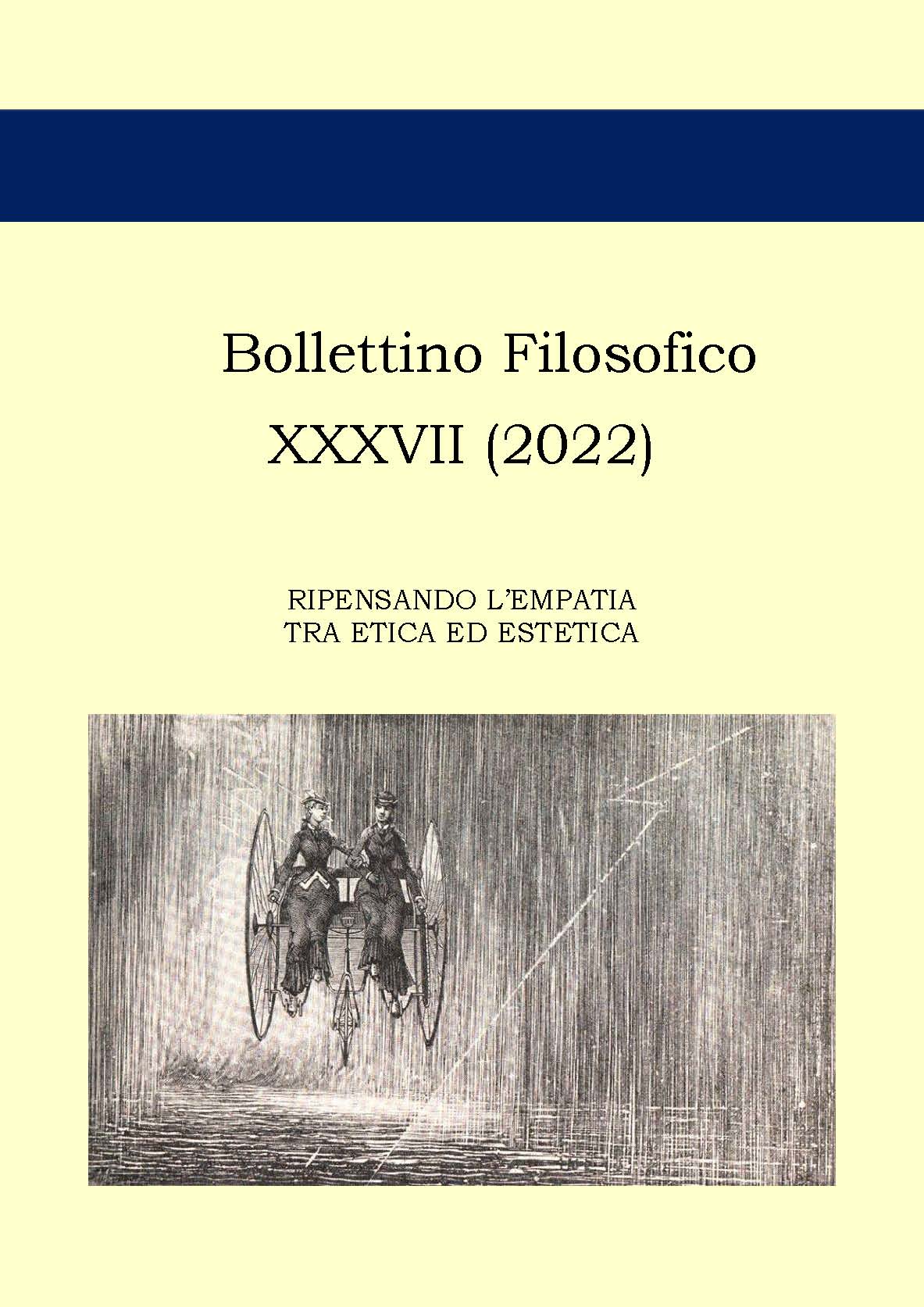Il corpo dell’altro: Patočka e le radici dell’empatia
Abstract
In this article, I will examine the issues of the other and empathy in Patočka’s phenomenology. I will first address the more general theme of otherness. Starting from a critique of Heidegger’s approach and an enhancement of the core of Husserlian analysis of intersubjectivity, Patočka confers a crucial role to otherness in the very constitution of the self and its relation to the world. This role is expressed in the description of the movement of sinking roots, as acceptance by the others and affective-sensible consonance with the world, which is the root of any further form of empathy. These analyses thus make it possible to delimit and redefine in an asubjective sense the relationships that the term “empathy” is intended to describe, in a phenomenological description of the structures of experience that at the same time aspires to be the basis of an existential ethics.
Keywords: Empathy, Heidegger, Husserl, Otherness, Patočka
Downloads
Bollettino Filosofico pubblica in internet, ad accesso aperto, con licenza:
|
|
CCPL Creative Commons Attribution |
L'autore conserva il copyright sul suo contributo, consentendo tuttavia a chiunque "di riprodurre, distribuire, comunicare al pubblico, esporre in pubblico, rappresentare, eseguire e recitare l'opera", purché siano correttamente citati l'autore e il titolo della rivista. L’autore, al momento della proposta di pubblicazione, è inoltre tenuto a dichiarare che il contenuto e l’organizzazione dell’opera è originale e non compromette in alcun modo i diritti di terzi, né gli obblighi connessi alla salvaguardia di diritti morali ed economici di altri autori o di altri aventi diritto, sia per testi, immagini, foto, tabelle, sia per altre parti di cui il contributo può essere composto. L’autore dichiara altresì di essere a conoscenza delle sanzioni previste dal codice penale e dalle leggi speciali per l’ipotesi di falsità in atti ed uso di atti falsi, e che pertanto Bollettino Filosofico è esente da qualsiasi responsabilità di qualsivoglia natura, civile, amministrativa o penale, e sarà dall'autore tenuta indenne da qualsiasi richiesta o rivendicazione da parte di terzi.
